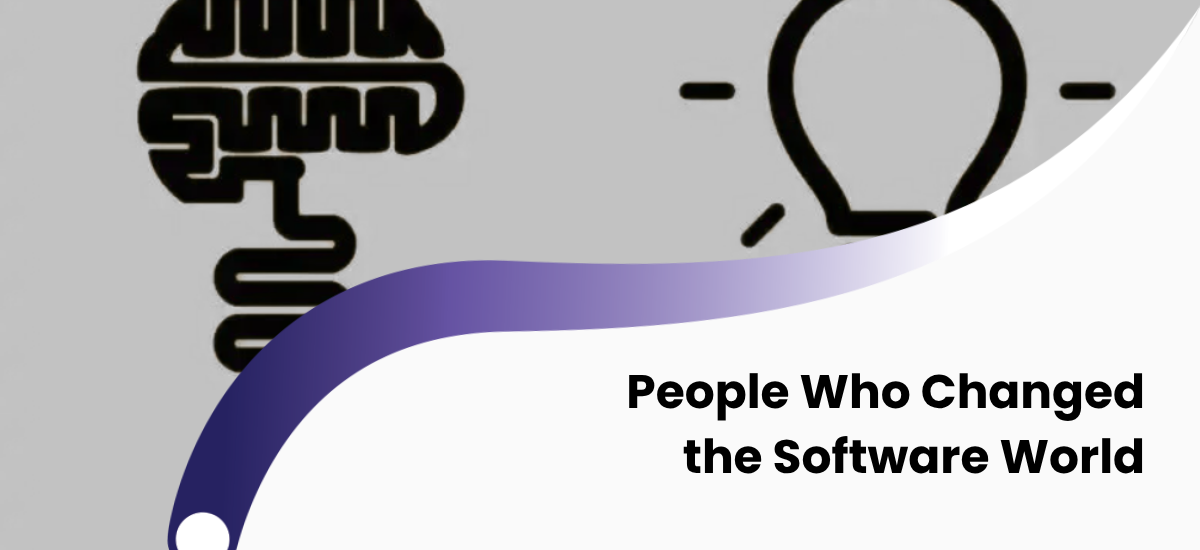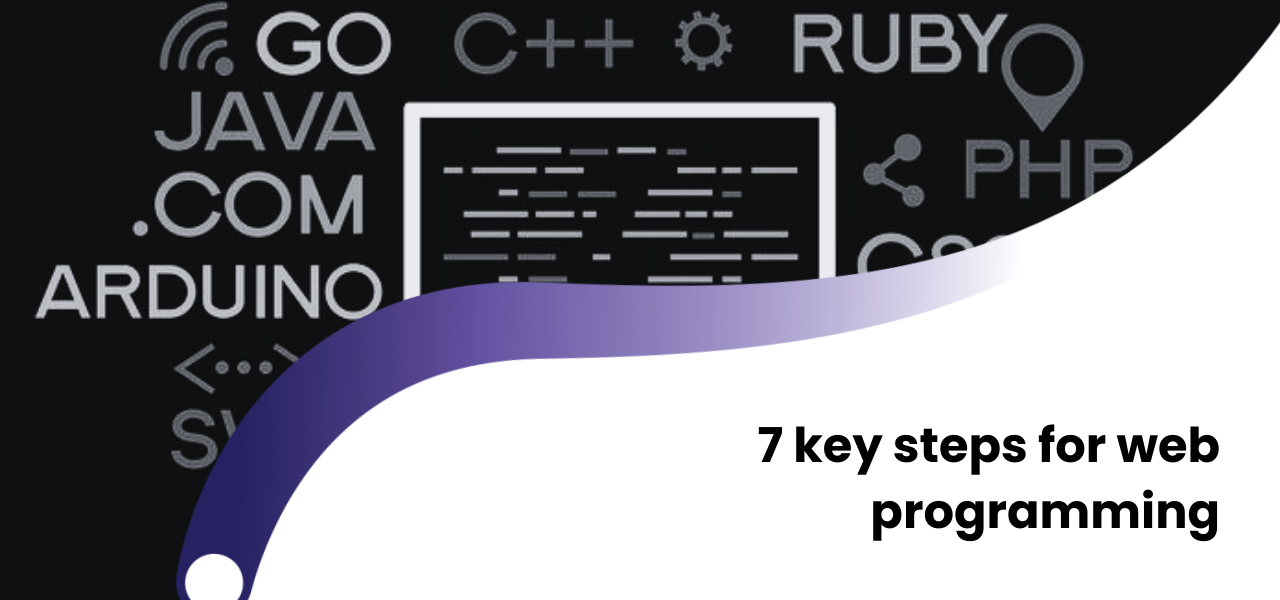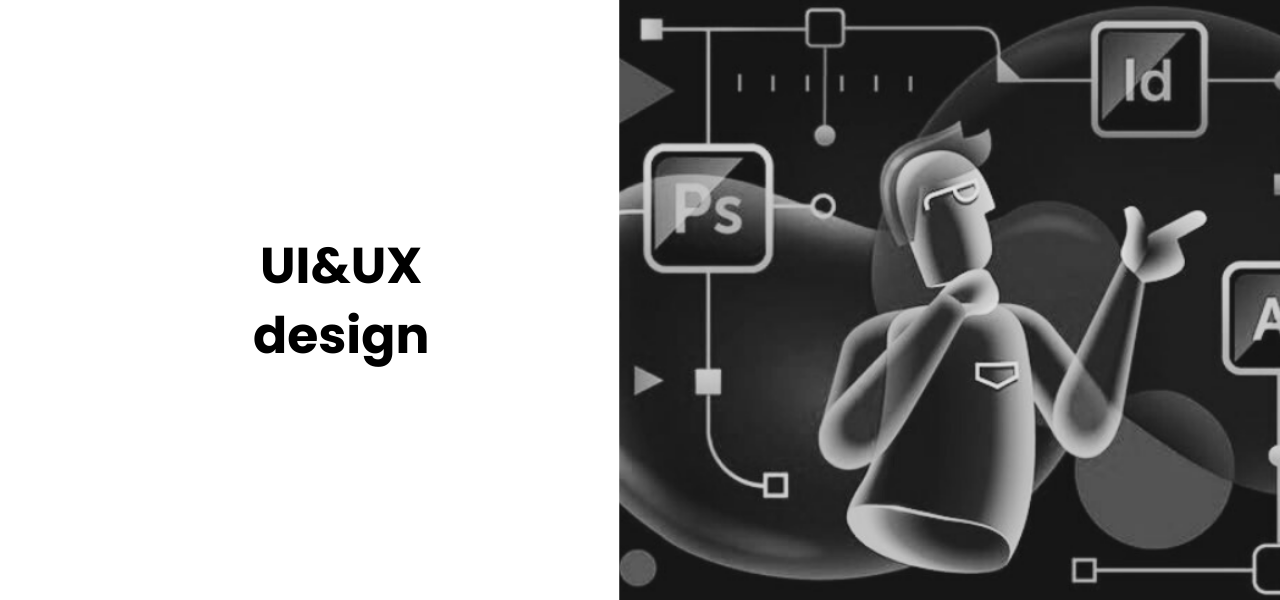The software world wasn’t built overnight. It was shaped by the vision, courage, and persistence of brilliant minds. From Alan Turing, the father of computer science, to Elon Musk, the innovator who revolutionized AI and space technology — each of them rewrote the future of technology. Let’s take a closer look at the people who changed the history of software.
Alan Turing - the father of computer science
Alan Turing introduced the concept of the “Turing Machine” in the 1930s — a theoretical model that explained how computers could think and follow logical processes. During World War II, Turing broke the Enigma code, saving millions of lives and laying the foundations of programming, algorithms, and artificial intelligence. Without his ideas, modern computers and the internet might not exist as we know them today.
Grace Hopper - the mother of programming languages
Grace Hopper made computers more understandable for humans. She developed the first compiler and created the COBOL language, which simplified coding and paved the way for the commercial software industry. Even the term “debugging” originated from her lab. Her legacy continues to shape the software world.
Bill Gates - the man who turned software into business
Bill Gates founded Microsoft in the 1970s and brought personal computing to every home through Windows. He commercialized software, introducing the concept of “software as a product.” Microsoft Office, Visual Studio, and the .NET Framework are all results of his vision. Today, through his humanitarian work, Gates ensures that technology continues to serve humanity.
Steve Jobs - the man who turned technology into art
Steve Jobs saw technology not just as a tool but as an experience. Within the Apple ecosystem, he seamlessly combined design, software, and user experience (UX). The Mac, iPhone, and App Store each represented a revolution in their field. Jobs’ “Think Different” philosophy laid the foundation for modern design-driven software engineering.
Linus Torvalds - the symbol of open-source culture
Linus Torvalds created the Linux operating system in 1991, igniting a global open-source revolution. Today, most servers, Android devices, and cloud infrastructures run on Linux. He proved that software could be built not only by corporations but also by developer communities. His “collaborative coding” model inspired platforms like GitHub and shaped modern DevOps culture.
Tim Berners-Lee the father of the Internet
Tim Berners-Lee invented the World Wide Web in 1989, connecting the entire world. His initial goal was to make information sharing easier, but the result was the creation of the global web we live in today. Every website, social media platform, and online service stems from his invention. He continues to advocate for an open and free internet.
Elon Musk - expanding the limits of technology
Elon Musk is more than an entrepreneur — he’s an innovator merging software with space, cars, and artificial intelligence. With PayPal, he revolutionized online payments. With Tesla, he electrified the automotive industry. With SpaceX, he redefined aerospace engineering. More recently, through Neuralink and OpenAI, Musk has explored the integration of AI with the human brain. His mission is simple: to bring humanity one step closer to the future.
Satya Nadella - the leader who brought software to the cloud
Satya Nadella transformed Microsoft into a modern tech powerhouse. Under his leadership, Microsoft achieved massive growth in Azure Cloud, AI, and DevOps services. Nadella’s philosophy is simple: technology should empower everyone. He symbolizes the “Cloud-first, AI-first” era of software innovation.
Sam Altman - the architect of the AI era
Sam Altman, CEO of OpenAI, is the visionary behind ChatGPT and GPT-5. He turned artificial intelligence into a practical tool — from education to medicine, from business to creative industries. Altman believes that “AI should amplify human potential, not replace it.” Under his leadership, OpenAI has become both a technological and ethical leader in the AI industry.
Jensen Huang - the engine of the AI revolution
Jensen Huang, founder of NVIDIA, built the hardware foundation of modern AI. His GPUs power most AI models used today — including ChatGPT, Midjourney, and Tesla Autopilot. NVIDIA’s innovations have made large-scale deep learning possible. Huang’s vision is clear: “AI should be in everyone’s hands.”
Mark Zuckerberg - from social media to the metaverse
Mark Zuckerberg founded Facebook in 2004 and changed the way people connect forever. In recent years, he’s focused on Meta and the Metaverse, pushing forward virtual and augmented reality. Zuckerberg showed that software is not only about business but also about building human relationships and digital communities.
The creators of modern software
Today, software is no longer just code — it’s a combination of artificial intelligence, cloud computing, DevOps, cybersecurity, and design. Modern engineers combine creative thinking with technical expertise to build smarter, more sustainable, and ethical systems. Azerbaijan, too, is part of this transformation — with its growing startup ecosystem, education centers, and IT companies leading regional innovation.
Every era has its genius
Alan Turing made computers think. Grace Hopper taught them to speak. Bill Gates brought them to every home. Steve Jobs gave them a soul. Linus Torvalds made them open to everyone. Elon Musk and Sam Altman gave them a future. Maybe the next breakthrough will come from you — because the story of software is still being written.
Frequently Asked Questions (FAQ)
Who is considered the founder of software?
Alan Turing developed the scientific model that became the foundation of modern programming.
What is open-source and who popularized it?
Open-source means that a program’s source code is publicly available. Linus Torvalds (Linux) and Richard Stallman helped popularize this model.
Who leads the development of artificial intelligence today?
Sam Altman (OpenAI) and Jensen Huang (NVIDIA) are among the key figures shaping the AI infrastructure and ecosystem.
What role did women play in the software revolution?
Grace Hopper and Ada Lovelace were pioneers whose work laid the foundation for modern programming languages.
What does the future of software look like?
The future of software will merge AI, Cloud, and Quantum Computing, becoming smarter, faster, and more adaptive.
 +994512060920
+994512060920





